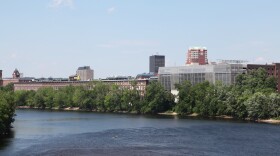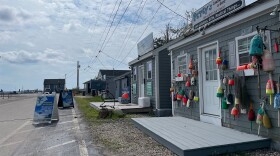Scientists and commercial fishermen are at odds over a new report on overfishing in the Gulf of Maine.
A National Oceanic and Atmospheric Administration study gives a dire assessment of the health of the codfish population.
At a meeting in Portsmouth, federal regulators met with fishermen to discuss the study that has yet to be peer reviewed.
Eric Schwab, with the National Marine Fisheries Service, says federal law requires the cod fishery be rebuilt to historic levels by 2014. “We are seeing some preliminary scientific numbers that are surprising, and frankly, bad, and would lead to some more restrictive management measures if these numbers hold up,” says Schwab.
But Hampton Fisherman and Marine Biologist David Goethel says that he disputes some of the findings of the study, and that any more draconian regulations could reduce commercial fishing by 80 percent.







